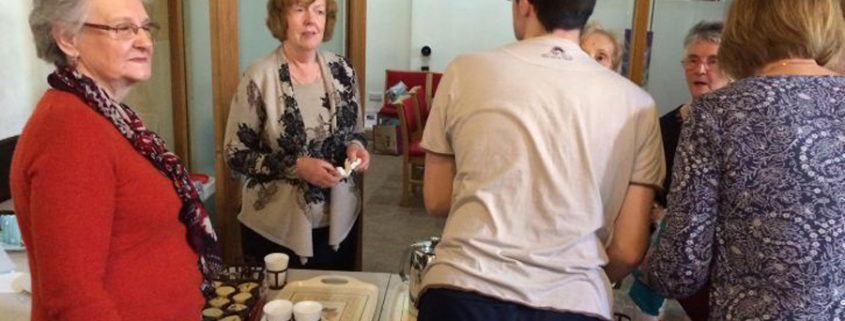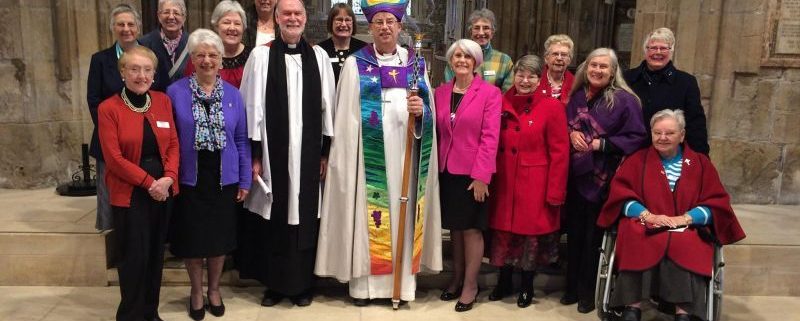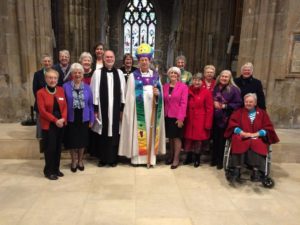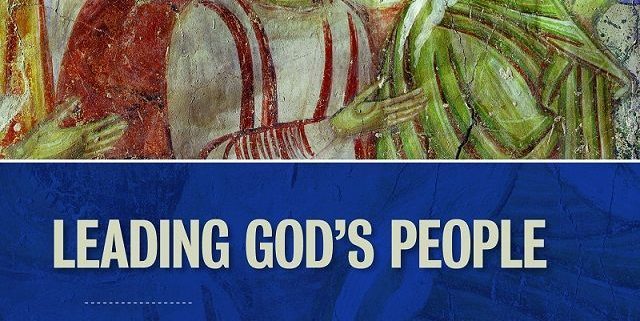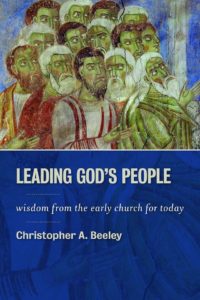Welcome to this Synod and thank you in turn for your welcome to me. I am deeply honoured to be here. I am enjoying exploring the Diocese. I am greatly in need of your prayers. I am thankful for so many able colleagues and especially grateful to Bishop Colin and the senior team for their careful stewardship of the diocese during this long vacancy. I am doing my best to begin gently and to understand the diocese before we set our direction together. I still have my L Plates firmly in view.
A time of change
The world is in a time of change. In June, Britain voted to leave the European Union. This week, the United States elected a new President signalling a significant change of direction. Neither decision was predicted. Both have immense significance.
What is our calling as a Church in such a time of uncertainty?
The heart of our calling is to be a community of grace, a Christ-like Church in every village and town and city across this Diocese. The Church is far more than a human invention or institution. “For we are what he has made us” writes Paul in Ephesians, “created in Christ Jesus for good works, which God prepared beforehand to be our way of life” [1].
“For we are what he has made us”. A literal translation for those words would say this: “For we are his poem”. We the Church are the poem God is making. We are the story God is writing. We are that new song that God is singing for the blessing of creation.
In times of great uncertainty, we are called to a simple vision: to be Christ-like together in our common life. The Church is called to be like Jesus together: his body in the world. We are called to be the Church of the Beatitudes: poor in spirit, acknowledging our need of God; mourning for the suffering and pain of the world; humble; hungry and thirsty for justice; loving mercy; pursuing holiness; making peace where there is division; willing to bear the cost of our discipleship.
Shaping and sustaining these communities of grace is a high and demanding calling, shared by every disciple, ordained and lay. Thank you for all that you give to this task, week by week and year by year. I look forward very much to getting to know you better and to sharing this ministry with you.
Listening
Every new bishop is called to listen, to take stock, to reflect on future direction. I am part-way through home visits to the clergy of the Oxford Area. In December, I begin a programme of day visits to all of the 29 deaneries which will take me through to next July. On each day I will spend time with the chapter, make visits in the wider community, spend time with lay leaders in the deanery and hold an open meeting for anyone who wants to come.
I hope that out of this process of listening and prayer and reflection together, a common sense will emerge for the next part of our journey together as a Diocese: for God’s call to us at this time and in this place. I have invited Area Deans and Lay Chairs, Bishop’s Council and others to join me in a three day residential in May as we reflect on that question together.
I have named three priorities at the beginning of my ministry in Oxford: children and young people; the poor; and discipleship. These priorities are not a strategy. That will emerge in time. They are simply priorities which I commend to you and where I will try and focus what I do and say.
These priorities have been with me throughout my ministry. Thirty years ago this year, I became Vicar of Ovenden in Halifax, the parish where my dad grew up. It is a very poor community of housing estates with high levels of social need. My nine years there were spent grappling with issues of poverty and deprivation; working with children and young people in schools and community ventures and youth groups; and making and equipping disciples and seeing them grow to maturity.
Children and Young People
We have a remarkable opportunity in this Diocese to invest in the lives of children and young people through our 285 schools. (In the Diocese of Sheffield there are 40. When I first saw that figure of 285, I thought it must be a mistake.) There are 58,000 children and young people in our schools and approaching 10,000 members of staff. Through our schools we have the opportunity to offer an excellent education and a foundation for life with Christian values and the opportunity to learn about Christian faith.
We have our schools today because of the foresight and investment of those who came before us who made a children and young people a priority. As we will hear later this morning, this next decade is one in which we need to match their courage and vision and hope.
Our 619 parishes have the potential to be centres of mission to children and young people, forming faith and laying foundations for life through children’s and youth groups, through nurturing faith in families and by reaching out into their communities. Children’s and young people’s services are being cut back by local authorities. How can we respond? We will hear this morning of the outstanding work of PACT in the field of adoption, again, part of our response to this priority.
One of the projects I am most proud of in the Diocese of Sheffield is the Centenary Project. In 2014, the Diocese took one million pounds of its very limited reserves and set it aside to fund part time paid youth and children’s workers in poorer communities. We were rebuilding children’s work from the ground up. Research shows clearly that the most effective investment a parish can make for the future, once the parish share is paid, is in children’s and youth ministry. I look forward to hearing what is already happening here.
Poverty and Deprivation
As you will know, I have moved from one of the poorest and most generous communities in the country to one of the wealthiest. But alongside affluence, comes inequality and poverty which is real but often hidden. In certain areas of Milton Keynes, Oxford and Reading there are rates of child poverty as high as 40 per cent. Fifty-three of our neighbourhoods are in the 20 per cent most deprived in England. Here as in the rest of England, the number of food banks is increasing. The need for them is growing. The number of rough sleepers is rising. The challenge of welcoming and caring for asylum seekers is very real.
Poverty is not only about income. It is about access to services, housing, marginalisation and relationships. It is experienced in rural as well as urban communities.
The Board of Mission has a deep history of engagement with these issues. The Board has recently commissioned new research and listening on poverty in the Diocese. Much is being done. We need to continue and deepen our work of care for the most vulnerable in our communities and work for a fair and just society.
Discipleship
This Church we love is a community of missionary disciples, according to Pope Francis: a community called like the first disciples to be with Jesus together and to be sent out. We are called to recover in our generation that sense of every disciple living out their baptism and living in that rhythm of worship, community and mission in the whole of our lives.
Our parish churches and fresh expressions of church, our chaplaincies and religious communities are places where disciples are formed. Our Diocese has the potential to become, in Benedict’s words, a school for the Lord’s service, a place where we are shaped together into the likeness of Christ.
This means taking teaching and learning and formation seriously and deeply: of both ordained and lay. It means especially taking seriously the formation of new Christians, the ancient discipline of catechesis, teaching and learning the faith. It means investing more deeply in the lives of those who are enquiring into faith and those at points of learning and discovery in their lives. It means creating those opportunities for learning and grown in every place, every year, rediscovering the ancient pathways and offering new life to all.
As I travel across the Diocese in the coming months, I will be listening especially to what is happening in this area: how new Christians are being formed in faith and how established Christians are being equipped to live out their baptism. I will not be looking so much at what brand of material you are using. You will not receive extra points for Pilgrim. I will be looking at whether you are offering something and how much time and energy is invested in the making of disciples.
And finally…
In this uncertain time, we are what God has made us. We are God’s poem, God’s story, God’s new song in this place. We are called to be a Christ-like Church, the Church of the Beatitudes. We are called to be a Church for the young and a Church for the poor. We are called to be a Church which makes disciples: a school for the Lord’s service.
I look forward to the journey we will share together.
+Steven
[1] Ephesians 2.10

